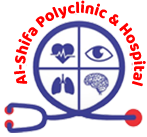Manic-depressive disease, another name for bipolar disorder, is a mental illness marked by severe mood fluctuations that include emotional highs (mania or hypomania) and lows (depression). These mood fluctuations can have an impact on one’s capacity for clear thinking, energy, behaviour, sleep, and judgement.
Types of Bipolar Disorder
Bipolar I Disorder
Manic episodes lasting at least seven days or manic symptoms so severe that hospitalisation is required right away are signs of bipolar I disorder. There are also depressive periods, which usually continue for two weeks or longer.
Bipolar II Disorder
This variety does not involve the full-blown manic episodes mentioned above, but rather a pattern of hypomanic and depressed periods.
Cyclothymic Disorder (Cyclothymia)
Symptoms that do not fit the diagnostic criteria for either a hypomanic episode or a depressive episode, but instead exhibit periods of hypomanic symptoms and periods of depressive symptoms that endure for at least two years (or one year in the case of children and adolescents).
Causes
Genetic Elements
Family History
Bipolar disorder has a tendency to run in families. People who have a parent or sibling with bipolar disorder are more likely to get the illness themselves. Significant genetic component is also indicated by twin studies; nonetheless, it is not exclusively inherited.
Genetic Variations
Although no one gene has been found to be the cause of bipolar illness, several genes and genetic variations may enhance vulnerability to the disorder.
Factors Related to Biology Brain Function and Structure
Brain Structure and Functioning
Research on brain imaging has revealed that people with bipolar disorder have different brain structures and functions than people without the illness. These variations are especially noticeable in the prefrontal cortex and amygdala, two brain regions linked to mood management and impulse control.
Neurotransmitter Imbalance
Chemicals in the brain called neurotransmitters, which transfer messages between nerve cells, are linked to bipolar disorder. Serotonin, dopamine, and norepinephrine dysregulation is one neurotransmitter that may be responsible for the disorder’s typical mood swings.
Environmental Elements
Stressful Life Events
In those who are prone to the illness, traumatic or extremely stressful events, such as the death of a loved one, divorce, or financial difficulties, can cause or worsen the symptoms of bipolar disorder.
Substance Abuse
Abuse of alcohol or drugs can precipitate or exacerbate bipolar disorder symptoms. Additionally, substance usage might make it more difficult to diagnose and treat the disease.
Sleep Disturbances
People with bipolar disorder may experience manic or depressed episodes as a result of irregular sleep patterns or sleep deprivation.
Additional Contributing Elements
Hormonal Imbalances
Modifications in hormone levels, especially those associated with thyroid function, might impact mood and perhaps play a role in the development of bipolar illness.
Early Infancy Trauma
Bipolar disorder risk is elevated in later life if an individual experiences abuse, neglect, or other traumatic events throughout their early infancy.
It is crucial to remember that although these variables may raise a person’s chance of getting bipolar disorder, they do not ensure that someone will experience the illness. To completely comprehend the causes underlying bipolar disorder, more research is necessary as each individual’s combination of these elements varies.
Symptoms
Episode of Manic/Hypomanic
- Exaggerated self-worth or conceit
- Reduction in the desire for sleep
- Increased talkativeness or a sense of being under pressure to talk
- Flight of ideas or racing thoughts
- Distraction
- An increase in sexual activity, goal-directed behaviour in the workplace or at school, or bodily restlessness
- Excessive engagement in activities that are likely to result in unpleasant outcomes (such as uncontrolled shopping sprees, inappropriate sexual encounters, or risky economic ventures)
Depressive Episode
- Depressed for the bulk of the day, almost all the time
- Markedly reduced enjoyment or interest in all or nearly all activities for the majority of the day
- Not dieting-related significant weight loss, weight gain, or appetite reduction or enhancement
- Almost daily hypersomnia or insomnia
- Tiredness or low vitality
- Feelings of overwhelming guilt or unworthiness
- Reduced capacity for thought or focus, or indecision
Treatment
- Medications: Antidepressants, mood stabilisers, antipsychotics, and additional drugs as required.
- Psychotherapy: Family therapy, psychoeducation, and cognitive behavioural therapy (CBT) are forms of psychotherapy.
- Changes in Lifestyle: Consistent exercise, a balanced diet, enough rest, and stress reduction methods.
- Support Groups: Finding a bipolar disease support group can be beneficial for coping mechanisms and emotional support.
Managing Bipolar Disorder
- Frequent Check-Ups: Schedule routine visits with your physician.
- Adherence to Medication: Take prescription drugs exactly as directed.
- Monitoring Symptoms: Track your emotions and symptoms by keeping a journal of them.
- Healthy Lifestyle: Make sure you consume a balanced diet, get frequent exercise, and get enough sleep.
It’s critical to get professional assistance if you think you or someone you know may have bipolar disorder in order to receive a proper diagnosis and course of therapy.
Conclusion
Manic-depressive disease, another name for bipolar disorder, is a complicated mental illness characterised by extreme mood swings between emotional highs (mania or hypomania) and lows (depression). It has a big effect on a person’s mood, actions, sleep patterns, and judgement. The disorder’s symptoms can vary greatly, and its origins are complex, incorporating biological, genetic, and environmental variables. Support groups, lifestyle modifications, psychotherapy, and medication are often components of effective management. Improving the quality of life for individuals impacted by an illness requires prompt diagnosis and diligent treatment. For an accurate diagnosis and course of treatment, it is imperative that you seek professional assistance if you believe that you or someone you know may have bipolar illness.
